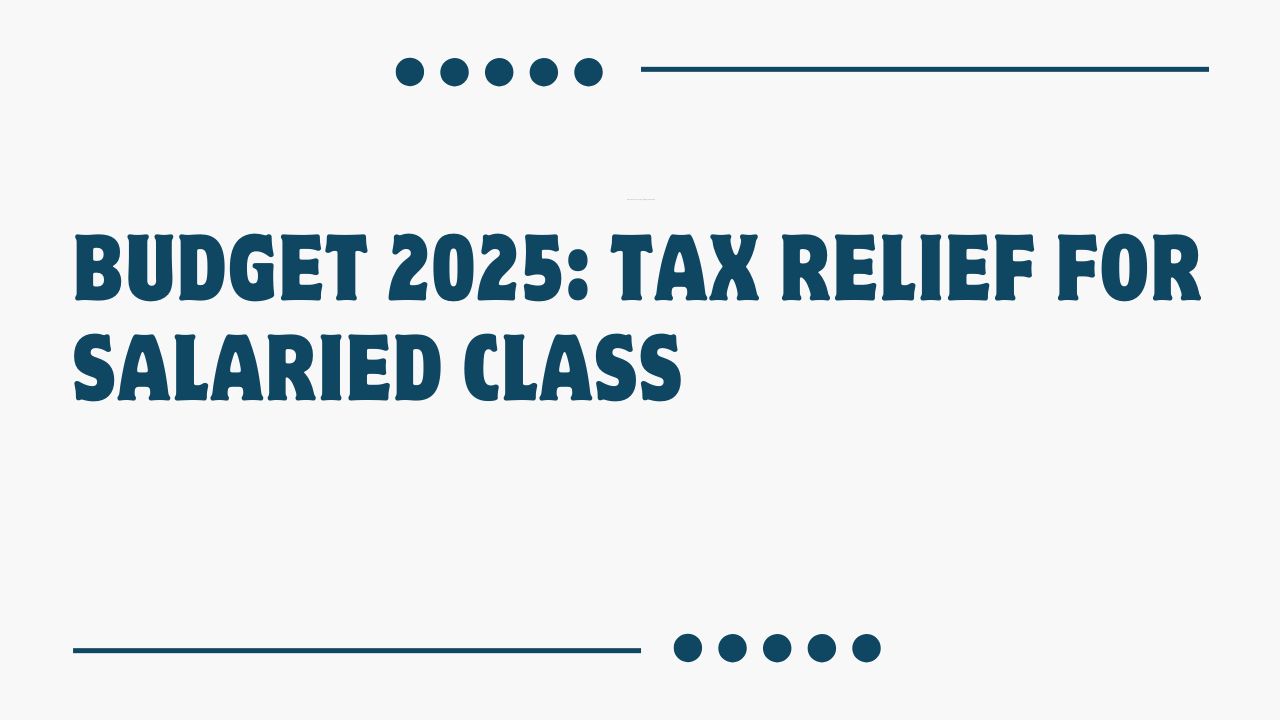
The Budget 2025 announcement has created a buzz all over the nation, particularly among the salaried class—a segment that has always borne the lion’s share of the income tax burden in Pakistan. With inflation, the cost of living, and wages remaining stagnant, every small policy adjustment now has huge implications for monthly earners.
With the upcoming Tax Changes for Salaried Classes in Budget 2025, it’s crucial to understand how these alterations will affect your finances.
These Tax Changes for the Salaried Class in Budget 2025 aim to provide significant relief and adjustments for employees.
So, what does Budget 2025 offer to salaried employees? Let’s get down to it in simple terms.
Understanding the Tax Changes for the Salaried Class in Budget 2025 is crucial for financial planning.
The recent Tax Changes for the Salaried Class in Budget 2025 have sparked discussions about equity in tax contributions.
Understanding the Tax Changes for Salaried Class in Budget 2025 is essential for effective financial planning.
Why Is the Salaried Class in Focus?
The Key Tax Changes for Salaried Class in Budget 2025 will affect various aspects of taxation and benefits.
Over the past few years, the salaried segment has been heavily taxed, primarily because they are easier to monitor due to documented incomes. Compared to that, huge parts of the economy—particularly retail, agriculture, and real estate—still underreport or evade taxes altogether.
Many are eagerly anticipating the Tax Changes for Salaried Class in Budget 2025, hoping for favourable outcomes.
The Tax Changes for Salaried Class in Budget 2025 aim to address income disparities and provide relief.
The FBR’s latest figures indicated a steep rise in tax collection from salaried persons, while others were behind. This disparity has become an issue and subject of criticism, and the government has decided to reconsider the strategy in Budget 2025.
________________________________________
Understanding the Tax Changes for the Salaried Class in Budget 2025 is vital to maximizing your earnings.
The Tax Changes for Salaried Class in Budget 2025 could mean significant financial relief for many.
Embracing the Tax Changes for the Salaried Class in Budget 2025 may lead to a brighter financial future for many.
Major Tax Amendments in Budget 2025
Tax Changes for Salaried Class in Budget 2025
1. Revised Tax Slabs
The government has proposed new income tax slabs, with some relief for middle-income earners. While exact figures may vary post-approval, the trend shows:
With the Tax Changes for Salaried Class in Budget 2025, many may see a welcome decrease in their tax liabilities.
• Raised exemption limit from PKR 600,000 to PKR 800,000.
• Reduced tax on incomes ranging between PKR 800,000 and PKR 2 million.
These Tax Changes for Salaried Class in Budget 2025 illustrate the government’s dedication to improving economic conditions.
With the Tax Changes for the Salaried Class in Budget 2025, employees can expect improved financial situations.
• Small decrease in top tax rate from 35% to 30%.
This could mean a noticeable reduction in monthly tax deductions for many.
The implications of the Tax Changes for the Salaried Class in Budget 2025 extend beyond just tax rates.
2. No New Tax on Salary Incomes
Unlike past years where new surcharges or levies were introduced, Budget 2025 does not introduce any additional taxes specifically on salaried individuals. This is being viewed as a much-needed break.

3. Focus on Broadening the Tax Base
Investing time to understand the Tax Changes for the Salaried Class in Budget 2025 can provide significant benefits.
The Finance Ministry announced plans to bring untaxed sectors into the net, reducing dependency on the salaried class. This includes real estate, retail, and digital freelancers.
These Tax Changes for the Salaried Class in Budget 2025 could influence your savings and investments.
While this won’t impact salaries directly, it indicates a shift toward greater tax fairness.
Overall, the Tax Changes for the Salaried Class in Budget 2025 hold the potential to revolutionize the income tax landscape in Pakistan.
The new Tax Changes for the Salaried Class in Budget 2025 aim to create a more equitable tax structure.
For personalized insights into the Tax Changes for the Salaried Class in Budget 2025, consult with our expert advisors.
What Does This Mean for You?
It’s essential to stay informed about the ongoing Tax Changes for the Salaried Class in Budget 2025.
If you’re a salaried person, here’s what Budget 2025 could mean:
- More take-home salary due to reduced tax rates.
- Better financial planning—with lower taxes, you may be able to save or invest more.
- Less resentment over tax inequality, assuming the government succeeds in widening the tax net.
However, it’s also possible that indirect taxes (like GST, utility bills, etc.) may rise to compensate. So, while your income tax might go down, your cost of living might still inch up.
What Should Salaried Individuals Do?
- Check Your New Tax Bracket: As soon as the budget is finalized, compare your salary against the new slab.
- Update Your Tax Planning: Use online tax calculators or consult a tax advisor to adjust your tax-saving strategies.
- Keep Documents Ready: If you’re claiming deductions (like investments, rent, education), make sure you have proofs ready by the end of the financial year.
The upcoming Tax Changes for Salaried Class in Budget 2025 are set to transform the financial landscape.
Make sure to keep an eye on the Tax Changes for Salaried Class in Budget 2025 for any updates.
Final Thoughts
Understanding the Tax Changes for Salaried Class in Budget 2025 will empower you to make informed decisions.
️ Budget 2025 is a small but positive step toward easing the burden on Pakistan’s salaried class. For once, the focus is shifting from squeezing the documented class to demanding contributions from those who have remained outside the system for far too long.
If implemented effectively, this budget might finally bring a fairer, more balanced tax structure—something the salaried segment has been waiting for.

Have questions or want to know how this impacts your income? Drop them in the comments or reach out to our tax consultants for personalized advice!

No responses yet